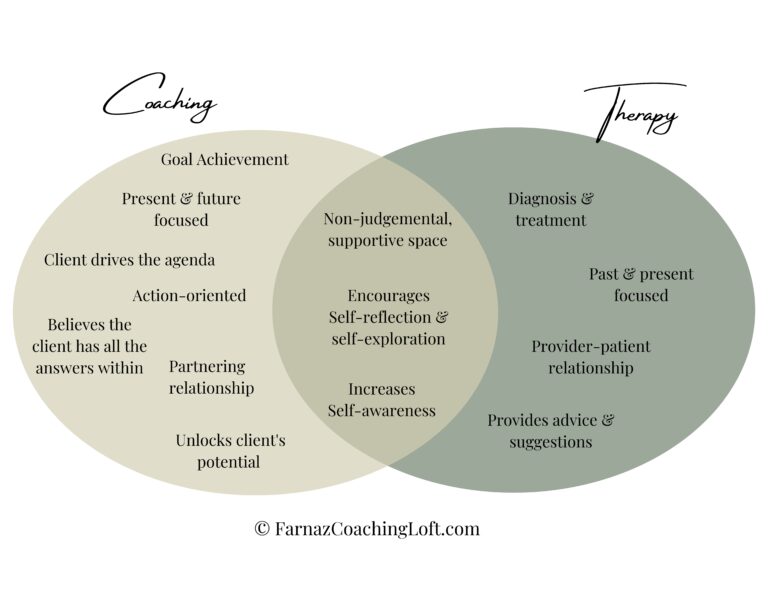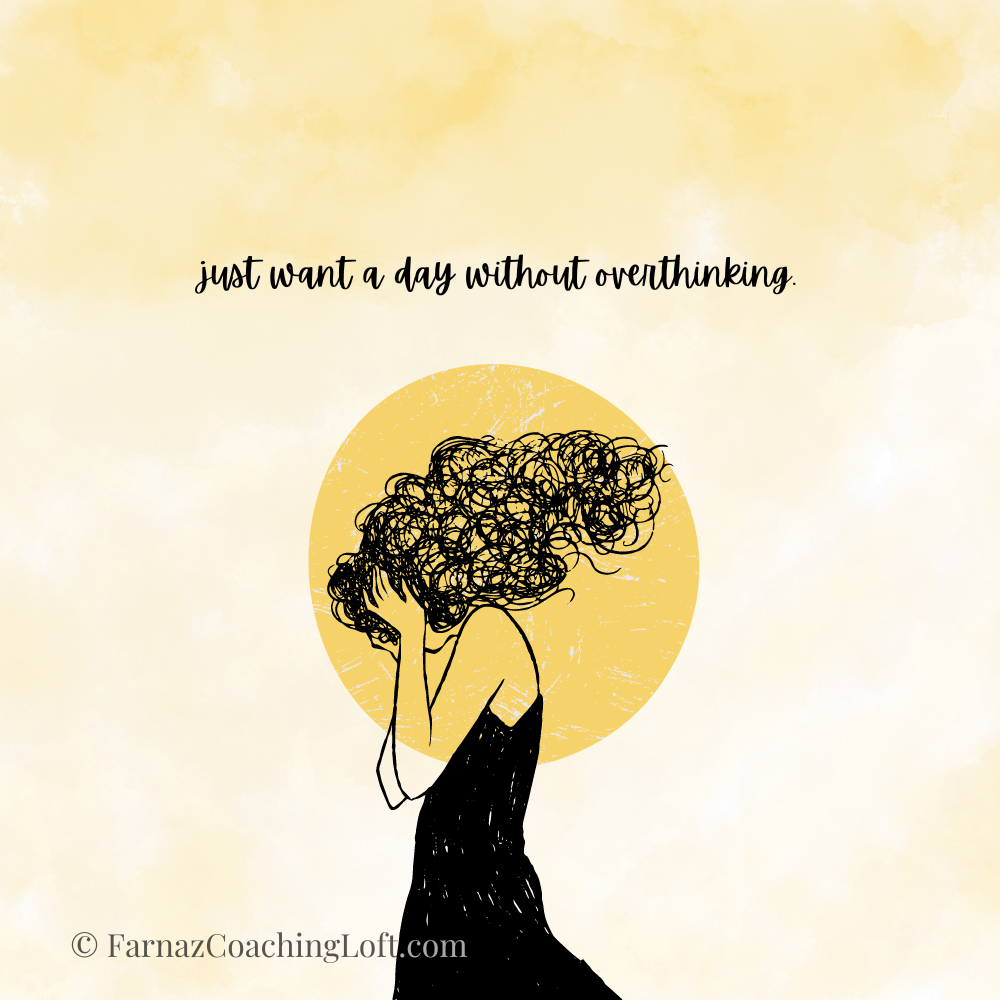
خودم میتونم!
جاهایی تو زندگیت هست که “خودم میتونم” نشانه تعهد و اعتماد تو به خودته.
همون جاهایی که بجای انکار و اجتناب از مواجهه با کارسخت،
یاد گرفتی رو پای خودت بایستی و قبل از پناه جستن در دیگری،
خودت پناه خودت باشی.

As a coach, one of the most common questions I get is “What is the difference between coaching and therapy?” It’s a fair question and one that is important to understand in order to determine which approach is right for you.
First, let’s define coaching and therapy. Coaching is a professional relationship in which the coach helps the client clarify their goals and develop strategies to achieve them. The focus is on the present and the future, and the coach helps the client take action and make positive changes in their life. The International Coaching Federation (ICF) defines coaching as “partnering with clients in a thought-provoking and creative process that inspires them to maximize their personal and professional potential.”
Therapy, on the other hand, is a professional relationship in which the therapist primarily addresses mental health and trauma issues that can be clinically diagnosed. The focus is on the past and the present. Therapy can be helpful for a wide range of mental disorders and issues, including depression, anxiety, trauma, relationship problems, and more. The American Psychological Association (APA) defines psychotherapy as “the informed and intentional application of clinical methods and interpersonal stances derived from established psychological principles to assist people in modifying their behaviors, cognitions, emotions, and/or other personal characteristics in directions that the participants deem desirable.”
As a self-discovery and self-care coach, my focus is on facilitating my clients’ self-reflection, decision-making, and planning for creating a life that is more aligned with their true selves. I help my clients grow their awareness of their emotions and thoughts, mental barriers, and self-sabotaging patterns in their life and take action toward creating constructive change. I help them slowly get to know their true self better and establish a healthy, kind, and compassionate relationship with themselves.

It depends on your goals and needs. If you’re looking to make positive changes in your life and achieve specific goals, coaching may be a good fit for you. If you’re dealing with emotional, mental, or behavioral issues (such as severe anxiety, depression symptoms, past trauma, or old emotional wounds) therapist is the right expert for you.
It’s important to remember that coaching and therapy are not mutually exclusive and can be used in conjunction with one another. It’s always a good idea to speak with a professional to determine the best approach for you.
When finding a coach or therapist, it’s important to do your research and choose someone who is a good fit for your needs. Here are a few things to consider when choosing a coach or therapist:
Credentials: Look for a coach or therapist who is licensed or certified in their field. This can provide reassurance that they have the knowledge and experience necessary to provide effective support. If you’re going to work with a coach, look for someone who is certified by at least one of the following organizations:
Specialization: Consider whether you would prefer to work with a coach or therapist who specializes in a specific area, such as relationship coaching, career development, or self-discovery and self-awareness.
Approach: Different coaches and therapists have different approaches and philosophies. Make sure to choose someone whose approach aligns with your needs and goals.
Availability: Consider whether the coach or therapist has a schedule that works for you. You may want to find someone who offers online sessions or has flexible appointment times.
Rapport:
It’s important to feel comfortable and connected with your coach or therapist. Don’t be afraid to try out a few different professionals before you find someone who you feel comfortable with.
That’s why at Farnaz Coaching Loft we have the chance to get to know each other first in a Chemistry Call without any commitments to see if we are a good fit. You can book your Chemistry Call here.
(Note: This call will be for free and you will need to pay only 10 € for the administration fee.)
Self- & Professional Development: When choosing a coach or therapist, it can be helpful to consider their commitment to self-care and professional development. A good coach or therapist should prioritize their mental health and seek support when needed, whether through their coaching or therapy sessions, or other forms of self-care. They should also be proactive about staying up to date with the latest research and techniques in their field, which may involve attending workshops, courses, and other professional development opportunities. By choosing a coach or therapist who demonstrates a dedication to self-care and ongoing learning, you can feel confident that you are working with someone who is well-equipped to support you in your journey toward greater well-being.
Overall, it’s important to choose a coach or therapist who is qualified, experienced, and able to provide the support you need to achieve your goals and improve your well-being.

جاهایی تو زندگیت هست که “خودم میتونم” نشانه تعهد و اعتماد تو به خودته.
همون جاهایی که بجای انکار و اجتناب از مواجهه با کارسخت،
یاد گرفتی رو پای خودت بایستی و قبل از پناه جستن در دیگری،
خودت پناه خودت باشی.

Have you ever gotten frustrated with your thought patterns and ways of thinking about what goes around you? Oftentimes it